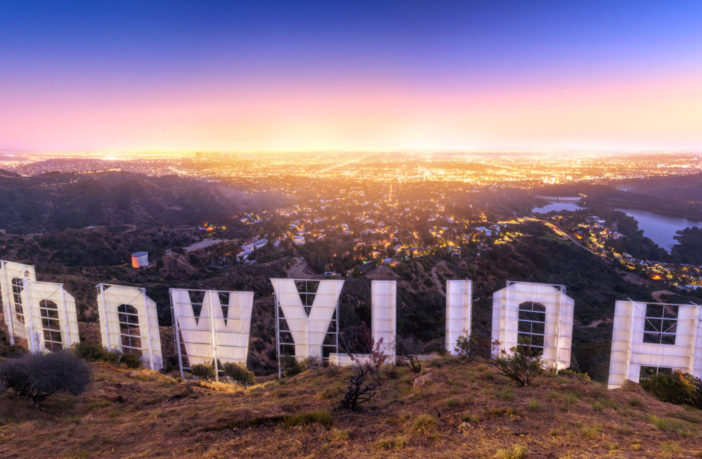A recent Sacramento Bee article points out five times California fought President Trump on immigration within the last few years. Predictably, it omits the consequences of each of its actions. Below are how its elected and appointed officials created or could have created problems for the state and the nation:
“A federal appeals court in California ruled President Trump’s diversion of $2.5 billion from military construction projects to fund the Mexico border wall ‘unlawful.’”
Sabotaging funding for the southern border wall is reckless. Not only does southern California border Mexico, it also boasts the busiest land crossing in the entire world: The San Ysidro Port of Entry. With border walls proven to deter narcotic flows, illegal immigration, and dangerous criminals, it is absurd that the state stymied this funding. California has the largest illegal alien population in the United States—costing it more than $23 billion annually (the most of any U.S. state). These figures are likely to increase with its decision to block border wall funding.
“In May 2018, California fought against the addition of a citizenship question to the 2020 Census when [Attorney General Xavier] Becerra filed a lawsuit against the Trump administration in the U.S. District Court in Northern California.”
The addition of a citizenship question to the 2020 Census would have not been unprecedented and could have brought numerous advantages to California and the rest of the nation. Article I, Section 2 of the U.S. Constitution requires the federal government to conduct a nationwide count of every person living in the United States every 10 years and questions involving citizenship occurred in surveys as early as 1820 and as recently as 1950.
Similarly, the American Community Survey (ACS) collects demographic data on an ongoing basis and asks about citizenship status. All of this data helps determine how many individuals, both legal and illegal, are living in each U.S. state. These figures ultimately determine the distribution of federal funding and electoral votes. In doing so, California undermined the integrity of the system under which federal funds are disbursed and electoral systems by opposing the inclusion of this question.
“California Gov. Gavin Newsom signed a new law on Oct. 11, 2019 to phase out private, for-profit immigration detention facilities and prisons in the state by 2028.”
Eliminating immigration detentions jeopardizes public safety and undermines the nation’s judicial system. With a reduction in immigration detentions, public safety could become compromised as many of the detainees have been convicted of more serious crimes than immigration offenses.
Additionally, those released with a pending court date more often than not do not have valid asylum claims and are unlikely to show up to their hearing. With immigration detentions already nearly maxed out, it is irresponsible that its governor signed onto this law.
“The ‘public charge’ rule, proposed by the Trump administration in 2019, has had what advocates call a “chilling effect” among immigrant communities. The policy denies an immigrant’s green card or visa application if they are likely to be dependent on public assistance, like food stamps or other programs. Last summer, California Gov. Gavin Newsom and Becerra filed a lawsuit to block the policy.”
Public charge laws have existed for centuries and are based on the rational principle that immigrants be self-sufficient. The nation must prioritize self-sufficiency and financial responsibility as most its social safety net is financed by taxpayers. Providing millions of dollars in benefits to people who are fiscal burdens to the nation would be careless. Today, almost two-thirds (63 percent) of all immigrant-led households use at least one welfare program – compared to only 35 percent of native-headed households. With welfare programs and illegal immigration costing the country hundreds of billions annually, finite resources must be safeguarded for other societal needs.
“A year after Trump’s inauguration, the president sought to increase vetting procedures for foreign nationals traveling to the U.S in 2017. Trump signed an executive order suspending foreign nationals from seven mostly Muslim countries, including Venezuela, from traveling to the country.”
The president’s travel ban addresses legitimate national security concerns identified by both his administration and those of his predecessor. Congress has delegated to the president clear, unambiguous authority to suspend entry to any alien or class of aliens deemed detrimental to the interests of the United States. Though the president’s order was eventually upheld by the Supreme Court of the United States, California’s judicial activism could have compromised public safety and enabled harmful actors abroad the opportunity to wreak havoc on the nation.
As seen by these five actions, the state of California has misguided priorities. Enhancing public safety, reducing fiscal costs, and upholding the rule of law, should be on the top of the state’s interests or really any state’s interests, but instead, it has succumbed to the interests of the open borders lobby and the cosmopolitan agenda.





2 Comments
Pingback: 5 Recent Times CA Fought Trump on Immigration—and Why They All Were Mistakes – India Inc Blog
Pingback: Five Recent Times California Fought Trump on Immigration—and Why They All Were Mistakes - Immigration Reform News